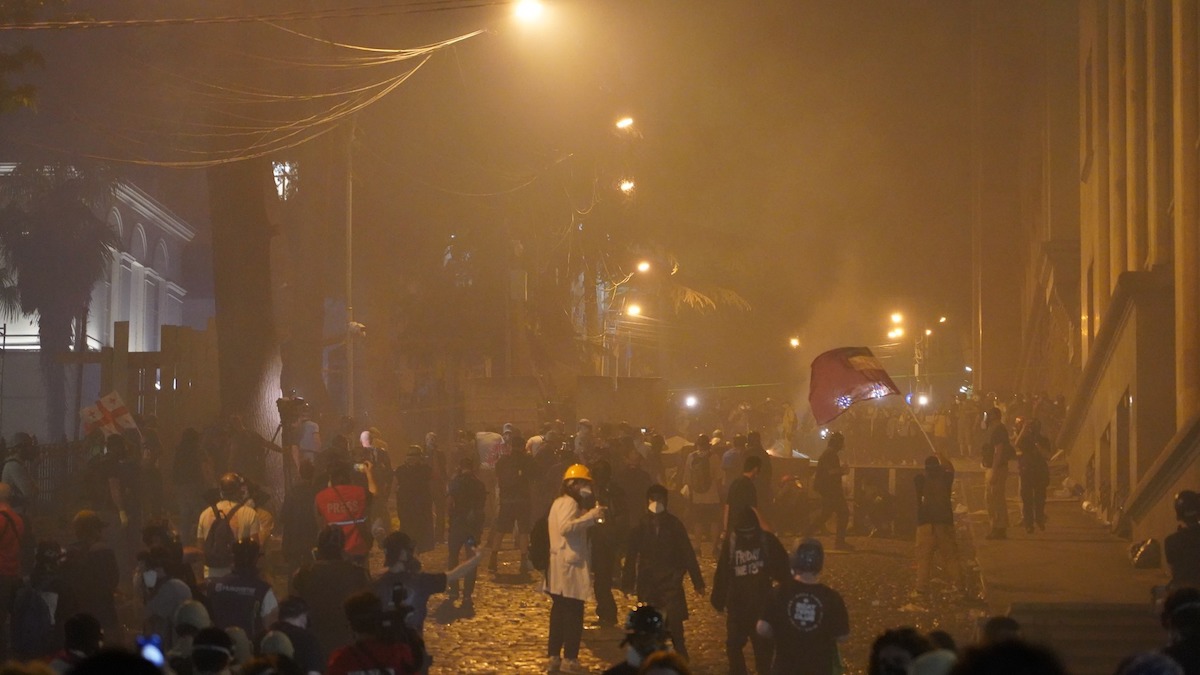"Pre-election monitoring in Georgia reveals polarization, violence, and bribery" - ISFED
ISFED on the Georgian elections
“Pre-election monitoring has revealed polarization, violence, bribery, the misuse of administrative resources, and more in Georgia,” stated the International Society for Fair Elections and Democracy (ISFED) in their pre-election report covering the period from June 1 to August 27 (before the official announcement of the parliamentary elections).
“We are, of course, already monitoring the official election period and have recorded incidents related to its beginning. However, at this point, we have only presented data up until August 27 and continue to monitor the pre-election period,” said ISFED executive director Nino Dolidze.
What’s in the report?
- Polarization of the campaign: ISFED observed that the official pre-election campaign in Georgia remains highly polarized. The organization pointed out that the ruling party, Georgian Dream, has made problematic statements, such as promising to declare opposition parties unconstitutional if they secure a constitutional majority.
- Polarization intensified by the “foreign agents” law: Another factor contributing to the polarization is the final adoption of the “Foreign Agents” law, which was approved despite significant public opposition. This opposition led to intimidation, threats, and physical assaults against those who opposed the law. ISFED highlights the widespread dissatisfaction with the adoption of the “Russian law,” as it’s commonly referred to, and the concerns expressed by Western partners.
- Electoral legislation changes: The report also noted a significant development—changes in electoral legislation that lowered the quorum required for decisions by the Central Election Commission (CEC). ISFED expressed concern over this, stating that it’s crucial for CEC decisions to be based on consensus and involve multiple parties to ensure public trust in the electoral process.
ISFED’s observations on the electoral administration
- Certification of commission members: ISFED monitored the electoral administration across several aspects. According to recent legislative changes, commission members were required to undergo certification. While the certification process was generally well-organized, ISFED reported instances where supervisors attempted to assist or give hints during exams.
- Monitoring of new technology simulations: The organization also monitored the simulations of new technologies in various regions. However, in some cases, observers were only able to watch the procedures that voters were supposed to follow, rather than the full simulation process.
- Concerns over CEC lottery draw procedure: One of the issues ISFED highlighted was a new ruling by Georgia’s Central Election Commission (CEC) regarding the lottery draw process. Previously, the draw to assign commission members’ roles took place on election day, allowing observers to monitor it. Now, the draw is required to be conducted no later than seven days before the election. ISFED considers this problematic as it could lead to pressure on individuals selected through the draw and makes it more difficult to observe the process.
- Pre-election campaign monitoring: ISFED’s pre-election report noted that electoral campaigns and the renting of offices in electoral districts and in Tbilisi began in June, with meetings with the public starting in July. The report documented instances of obstruction against some opposition parties’ campaigns, several acts of violence, and issues related to renting offices, including attacks on campaign offices.
- Bribery and misuse of resources: During the reporting period, five suspected cases of bribery were identified—three involving the ruling party and two involving opposition parties.
- Use of administrative resources: The report also mentioned cases where administrative resources were mobilized for ruling party events, which ISFED deemed particularly problematic during the pre-election period.




















